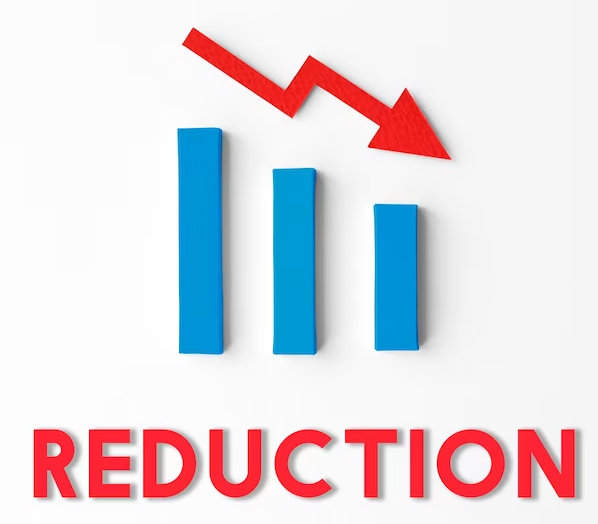In recent days, the business depends on data. It is essential to record all the happenings daily regarding the company. There is an increase in technology usage for basic tasks, and the information that has to be tracked and saved for future use is drastically increased.
The notion of business data is widespread, and it is essential for simple analytics to conduct a detailed review of the organization’s performance.
In this blog, you will understand the critical business data benefits, how to implement them, and measure the organization’s performance.
Table of Contents
1. What is Business Data
2. Types of business data
3. Key Business Data Benefits
3.1. Data helps businesses make better decisions
3.2. Data helps you solve problems
3.3. Better Customer Service
3.4. Data helps keep business up-to-date
3.5. Data helps the business to reduce waste
3.6. Data helps improve Financial Management
3.7. Data helps better performance and more efficient internal operations
3.8. Helps create a Data-driven culture
3.9. Data helps measure the success of the business and the performance of the employees
3.10. Innovation
4. Conclusion
1. What is Business Data?
“Business data” refers to digital assets, such as records and files, collected and maintained by a company to aid in strategic planning, decision-making, and day-to-day operations.
Business data includes a list of potential customers, name, address, and email of the customers; customer purchases; interactions with customers/stakeholders; target market information from social media; product catalogue; employee details; supply chain details; partner information; industry data such as market size, etc.
2. Types of business data
The business data that is collected are of different types.
1. Consumer Data: “Consumer data” refers to any information a business gathers about its clients. It can be personal data, customer engagement on the website, etc.
2. Analytics Data: Data collected for analysis; examples include metrics on website visitors and the efficacy of a company’s search engine optimization efforts (SEO metrics). The company can use this information to improve its marketing and website content creation.
3. Inventory and supply chain data: Supply chain and inventory data are compiled by businesses to guarantee accurate stock counts, smooth operations, and a steady stream of raw materials and finished goods. The company can use this information to quickly and accurately respond to any inventory or supply chain issues that may arise.
4. Product data: Data about a company’s products is called product data. This could include the company’s sales figures, level of popularity, product effectiveness, or manufacturing costs.
5. The term “marketing data” refers to any information gathered by a company to use in, or analyse, its marketing efforts. Analytics from customers or websites, data from market studies, information on competitors, and statistics on advertising are all examples of marketing data.
6. Employee Data: Businesses typically collect data on the productivity and involvement of employees at work. They might also keep tabs on employee behaviour or sales to understand the working environment and morale within the company.
3. Key Business Data Benefits
3.1. Data helps businesses make better decisions
A company would have goals for all areas, like developing, marketing, and selling the product. Data helps you make better and brighter decisions when planning for the company’s future. The customer is the king of the business. It is essential to understand the customers’ needs and pain points. Guess what? Data helps in understanding the customer’s perspectives.

So, when the customer likes and dislikes are known, it is easy to give the value propositions targeting specific customer segments with the products they opt for. Working with limited resources in a competitive environment and making intelligent decisions is easy. It is the ideal solution for companies that want to arrive at better-informed and confident decisions.
3.2. Data helps you solve problems
How do you find out the performance of the month or the year? You need accurate data to determine the slow sales or the campaign that did not perform well. When the business process is tracked and reviewed through data, you can understand the performance, break down each approach, and find the steps to improve and improve it.

So, with the business data, most of the problems are sorted out.
3.3. Better Customer Service
A repeated and happy customer is the success of the business. When the customer’s pain point is collected through data and given a solution, your company offers a great product every time and an experience unique to your competitors.

Example: A particular product might be liked and popular among people according to their demographic location. In that case, the company can plan and manufacture that product in larger quantities and keep the supply-demand efficient.
In the same way, vice-versa, if the customer does not like the product, it can be produced in very few quantities according to the business data.
3.4. Data helps keep business up-to-date
When the business follows a marketing strategy, how to find out if it is a success or failure? Yes! Data. Data is the propellant of the business’s marketing strategy.

Data helps you to find information about how customers accept your brand, whether the brand is a hit on social media, and what type of content gives the business an ROI.
When you have the customer information in your database, it can be used for targeting advertising campaigns. These could be used for an audience based on their likes concerning their interest, location, etc. When the information about the customer’s location is known, it is possible to send them real-time messages and increase sales in that area. The efficiency of the campaign is found through the available business data.
3.5. Data helps the business to reduce waste
Time, money, and resources are the main things that have to be used efficiently in a business. When you have the data, it helps to understand the business processes better. Therefore, it is easy to recognize the problem areas and reduce wastage (Time, money, and resources).

When the information about the sales of the product is available, it is easy to find out and maintain the stock accordingly. Also, you can stock, in large numbers, the products that are fast selling.
Also, when the data about the average employee working hours are known, assigning tasks for the employees and automating the other work would be easy. This helps to get a grip on larger projects and offer well-organized customer support.
3.6. Data helps improve Financial Management
It is possible to increase the revenue and the cash flow of the business with the help of data. It is easy to track spending habits, gives your insight into the money flow, and knows about the underperforming area quickly.

It’s easier to track and evaluate your profits if you know what makes it successful, like which location, merchandise, or customer group brings in the most money and in which area it is forthcoming. Your data will reveal growth opportunities for the future and allow for more efficient resource allocation.
3.7. Data helps better performance and more efficient internal operations
The goals and benchmarks of the company are decided each month. When there is the correct data, it is effortless to track the company’s performance concerning the goals and benchmarks.

Business Data may assist you in improving areas that are outside your control, like managing your supply chain or logistics scheduling, which directly affects your profits.
It can also help you run your own business more efficiently and cut down on the time you spend on certain tasks. It can help reduce mistakes people make if an aspect goes erroneous, like a problem with production that costs you sales or hurts your reputation.
3.8. Helps create a Data-driven culture
Let’s say you’d like your company to do well. In this scenario, everybody needs to be engaged with a culture that values data, from the most senior executives to supervisor’s staff at every level, from every hour production workers to salespeople. Being data-driven ensures everybody is on the equivalent page and promotes an environment of precision so that potential consumers consistently receive the most incredible experience possible.
3.9. Data helps measure the success of the business and the performance of the employees
Many successful business leaders mostly depended on some form of data to make quick and best decisions.

Let’s look at an example to show how you can use data to figure out how well your company and its employees are doing. Let’s propose you possibly possess a marketing and sales representative who is thought to be the best and has the greatest number of leads.
But when you check your company’s data, you find the fact that the sales representative winds down deals at a rate that is lower than another employee who gets fewer leads yet finishes deals at a greater rate. If you didn’t know this, you would keep sending more leads to the sales rep who wasn’t doing as well, which would cause you to forfeit additional funds from deals that didn’t get closed.
So, now that you have business data, you know which employees do a better job and which technique is effective for your company. Data helps you see things more clearly so you can get better results. When you look at additional information, you understand more.
3.10. Innovation
The understanding that you have with the business data leads to innovation. When there is more data collected from the customers, it helps the business keep informed about the customer base. When you know the perspectives of the customers regarding the product, it is easy to develop the product.

Also, the insights help in improvising business strategies, enhancing marketing ideas, and maximizing customer service, which in turn helps employee productivity.
The business is extremely competitive, and it is important to execute processes that keep an eye on the customer reviews, and the popularity of the product and also analyze the competitors.
Data helps real-time tracking of the potential market and makes you unique among the competitors.
4. Conclusion
Data is everywhere. Using data to run your business is the new standard in the world of technology, which is overgrowing. You need to use data to guide your business into the future to avoid becoming a business of the past! Thanks to improvements in data analysis and visualization, it is now easier to use data to grow your business. Look at your data and determine what you need to know to move your business into the future.
